Dental Surgery for Pets: When Are Extractions or Advanced Procedures Necessary?
Dental health is an essential part of a pet’s overall well-being, yet dental disease remains one of the most common health issues in both dogs and cats. While routine cleanings and at-home dental care can prevent many problems, some pets develop severe dental conditions that require surgical intervention, including tooth extractions or advanced procedures.
At Midtown Veterinary Hospital in Rochester, New York, we prioritize preventive dental care to avoid serious complications, but when surgery is necessary, we use the latest techniques to ensure your pet’s safety and comfort. This guide explains when dental surgery is needed, what to expect, and how to prevent dental disease in the first place.
Signs Your Pet May Need Dental Surgery
Many pets hide dental pain well, so it is important to watch for subtle signs that may indicate oral health issues. Contact your veterinarian if your pet exhibits any of the following:
- Bad breath (persistent foul odor)
- Difficulty eating or chewing (dropping food, chewing on one side, or refusing hard food)
- Red, swollen, or bleeding gums
- Loose, broken, or discolored teeth
- Pawing at the mouth or rubbing the face on furniture
- Excessive drooling
- Swelling around the face or jaw
Ignoring these symptoms can lead to severe pain, infection, and systemic health problems, as bacteria from the mouth can enter the bloodstream and affect the heart, liver, and kidneys.
Common Reasons for Dental Surgery in Pets
1. Tooth Extractions
Tooth extractions are often necessary when a tooth is severely damaged, infected, or causing pain. Extractions may be recommended for:
- Advanced periodontal disease – When infection destroys the tissues supporting the tooth.
- Fractured or broken teeth – If the fracture exposes the sensitive pulp, leading to pain and infection. Learn more about fractured teeth and treatment options.
- Abscessed teeth – Severe infections that cause swelling and pain.
- Retained baby teeth – Deciduous (baby) teeth that do not fall out properly can cause crowding and increase the risk of dental disease.
2. Oral Tumor Removal
Pets can develop benign or cancerous growths in the mouth that may require surgical removal. Early detection is key to a successful outcome.
3. Jaw Fracture Repair
Severe dental disease, trauma, or bone infections can lead to jaw fractures, which require specialized surgical intervention.
4. Treatment for Stomatitis (Cats)
Stomatitis is a painful inflammatory condition that causes severe mouth ulcers. In some cases, full-mouth extractions are needed to relieve pain and inflammation.
5. Root Canal Therapy
For some fractured teeth, a root canal may be an alternative to extraction. This procedure preserves the tooth structure while removing the damaged pulp.
What Happens During Pet Dental Surgery?
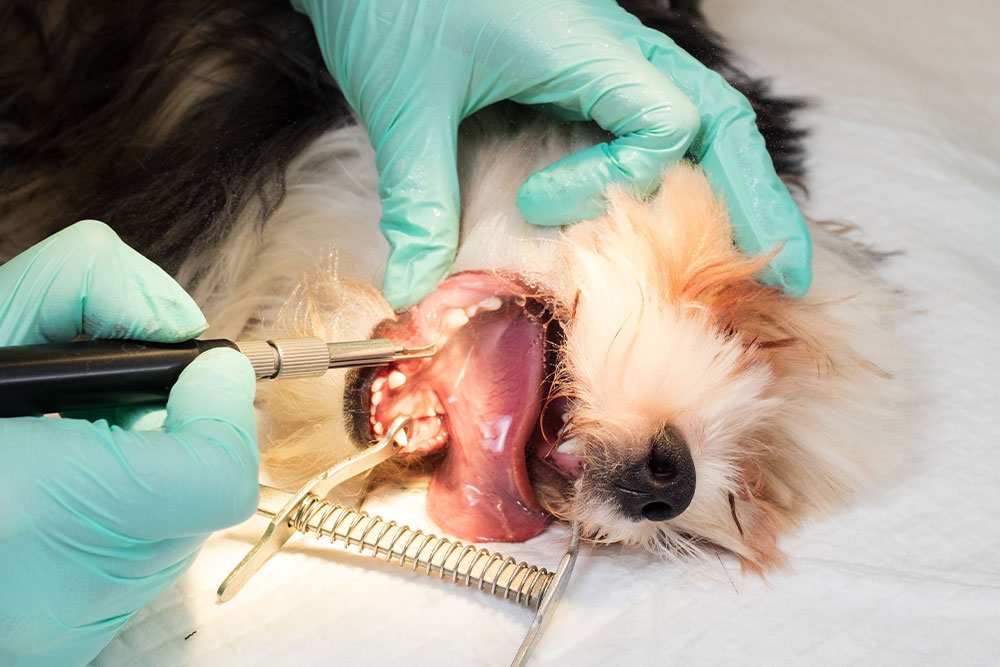
1. Pre-Surgical Evaluation
Before any dental surgery, your veterinarian will:
- Perform a physical exam
- Conduct bloodwork to ensure anesthesia safety
- Take dental radiographs (X-rays) to assess tooth roots and jaw health
Learn about the importance of anesthesia and dental cleaning for pets from AAHA.
Learn more about how dental radiographs help diagnose oral disease from Vetstreet.
2. Anesthesia and Pain Management
All dental surgeries are performed under general anesthesia to keep pets comfortable and pain-free. A trained team monitors heart rate, breathing, and blood pressure throughout the procedure.
Pain management is a top priority. A multimodal approach—including nerve blocks, anti-inflammatory medications, and post-surgical pain relief—ensures your pet’s recovery is as smooth as possible. Read more about multimodal analgesia for dental procedures.
3. Post-Surgical Care and Recovery
Most pets recover quickly from dental surgery, but proper aftercare is essential. Your veterinarian will provide:
- Pain medications and antibiotics (if needed)
- Soft food recommendations for easy chewing
- Home care instructions to prevent infection and promote healing
Preventing Dental Disease in Pets
While some dental issues are unavoidable, most can be prevented with proper care.
1. Regular Professional Cleanings
Routine dental exams and cleanings at your veterinarian’s office help prevent advanced disease and the need for extractions. Learn more about our veterinary dental services.
2. At-Home Dental Care
Daily toothbrushing is the best way to prevent plaque and tartar buildup. If your pet resists brushing, try:
- Dental chews (approved by the Veterinary Oral Health Council)
- Water additives for oral health
- Dental diets designed to reduce plaque
3. Safe Chew Toys
Some chew toys and bones are too hard and can fracture teeth. Avoid items like antlers, hooves, and hard nylon bones. Read about the dangers of certain chew toys.
When to Schedule a Dental Exam
If your pet is showing signs of dental discomfort or if it has been more than a year since their last dental cleaning, schedule an appointment as soon as possible. Early intervention can prevent pain, tooth loss, and serious infections.
Is your pet due for a dental exam? Schedule an appointment today.
Have questions about your pet’s oral health? Contact Midtown Veterinary Hospital for expert advice.

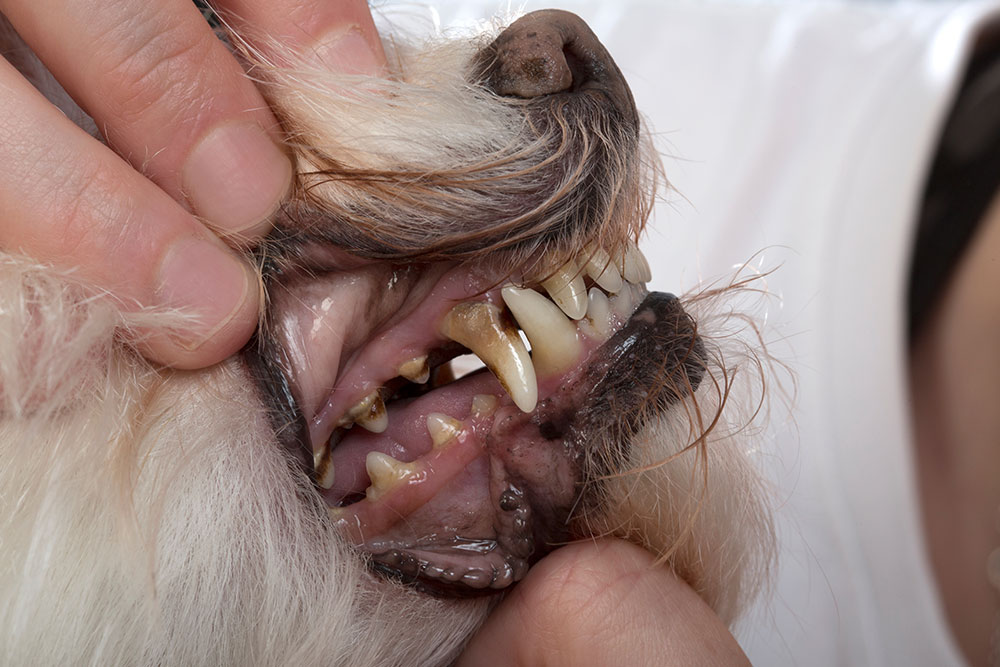
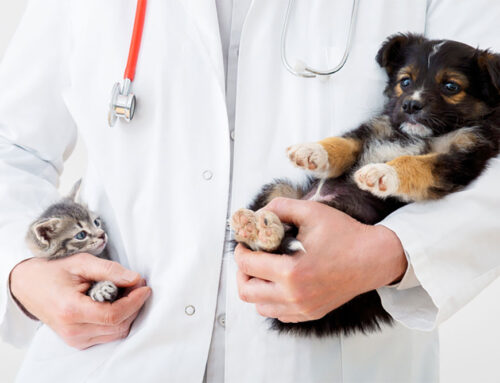

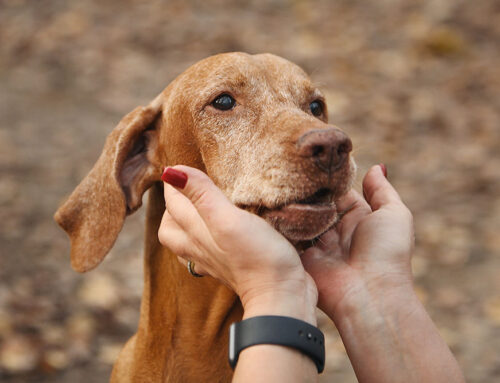
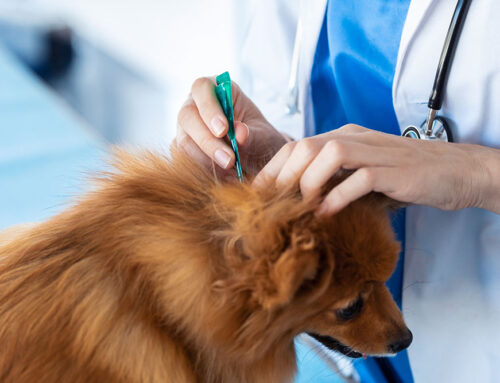
Leave A Comment